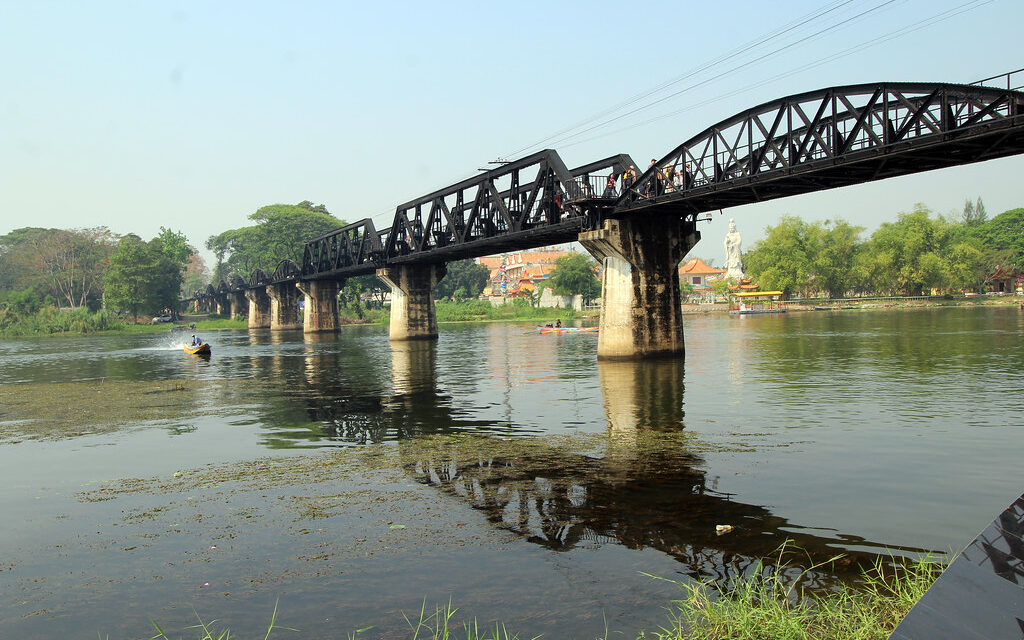[Note: With the publication of The Rise of the Novel in 1957, the charismatic Stanford professor Ian Watt (1917-1999) became one of the most influential literary critics of the post-war period. He did not publish much, if anything, about his still recent experiences as a Japanese prisoner-of-war and a forced laborer on the infamous Burma-Thailand Railway, the historical truth of which did not find its way into the film The Bridge on the River Kwai. Marina MacKay’s Ian Watt: The Novel and the Wartime Critic (Oxford, 2018) digs into the archives of his fellow prisoners as well as Watt’s unpublished writings to restore this dimension to his epoch-making vision of the rise of the novel—which is much darker in this version– and of Joseph Conrad. Hunt Hawkins, once upon a time a student of Watt’s, pays tribute here.]
Since Singapore’s guns were meant for ships,
the Japanese came the other way,
through jungle thought impenetrable,
and captured the British, shamed by surrender,
lives forfeited, dragged to Changi Prison,
then north to camps all along the Kwai valley.
Dante, lost in dark woods in the middle of life,
stalked by beasts, came to the gate of Hell,
starless place of pain and lost people.
Virgil, sturdy Reason, led him down
over broken rocks to the Seventh Circle,
the violent sunk in a river of boiling blood.
With shovels, picks, and bamboo baskets,
the soldier slaves cut the trace,
Korean guards beating slackers and sick,
nailing some to trees for all to see.
Each morning Watt memorized a page
of Commedia, then tore it for cigarette paper.
The real Alighieri, condemned by Black Guelphs
to public burning, fled Florence for hard exile
in Rome, Verona, Sarzano, Lucca, Ravenna.
He carefully placed his enemies in Inferno
until a saving memory came of childhood love,
Beatrice, decades dead but gently guiding.
For three-and-a-half years Watt moved camps:
Chungkai, Konkuita, Tamuang, Kanchanaburi.
Shrapnel stuck near his spine,
ill with malaria, diphtheria, and beri-beri,
he watched Japanese throw the not-quite dead
into open pits with those who were.
Alighieri, leaving failing Reason, found himself
able to imagine a happy end, comedy, a rose
of light, love that moves the sun and other stars.
His pages went up in smoke over Thai jungles.
Their memorizer cleaned the ulcers on his legs
and obeyed an obscure duty to endure.

